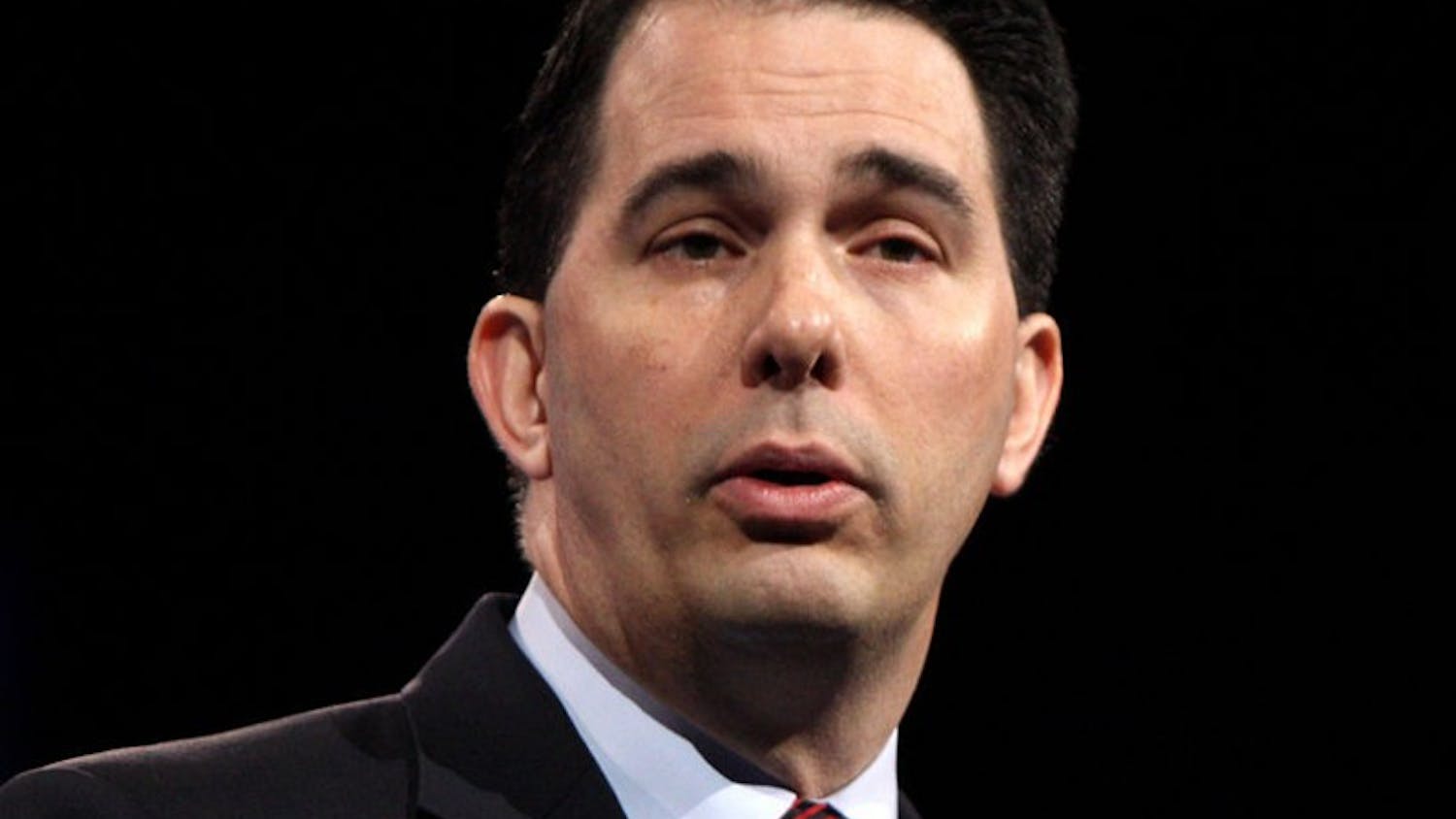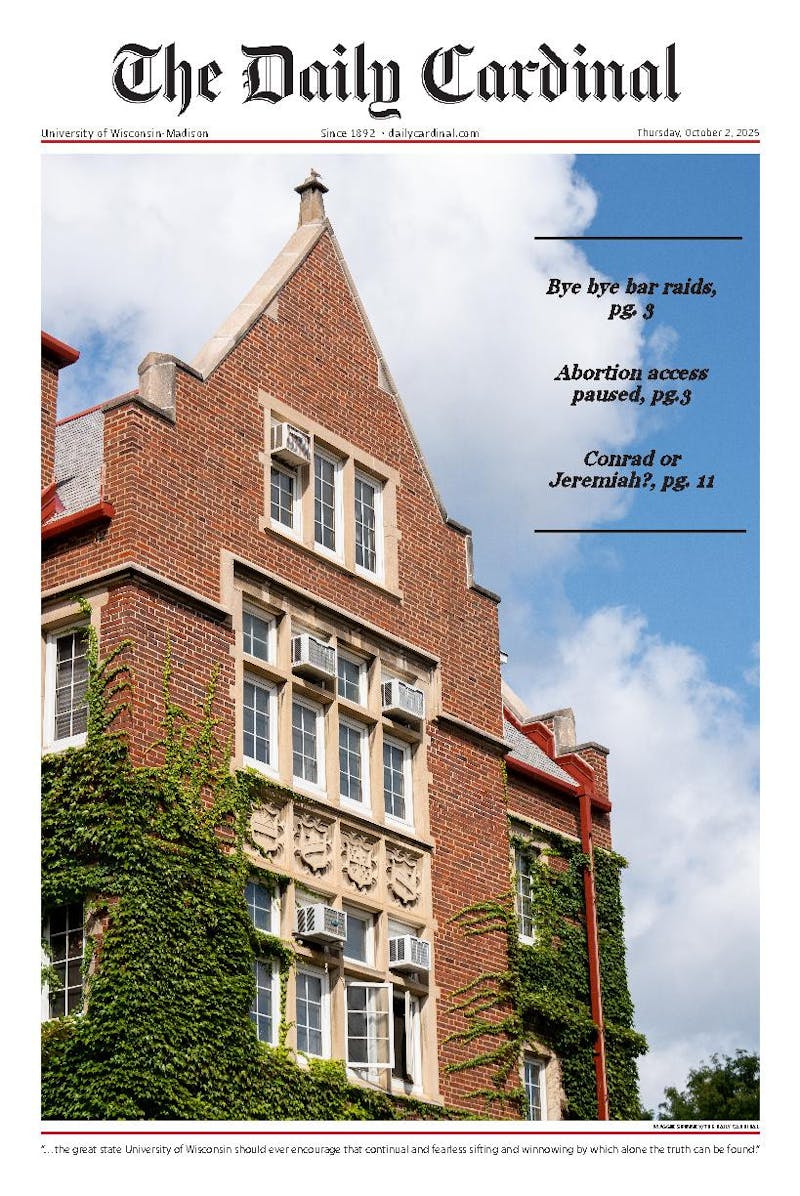January 25, 1973
By Duke Welter
of the Cardinal Staff
Local figures representing the entire history of the Madison peace movement expressed guarded optimism yesterday toward President Nixon's recent announcement of a Vietnam ceasefire. They also wondered why it couldn't have come sooner on the heels of Henry Kissinger's announcement in October that "peace is at hand."
Most of those interviewed by the Cardinal also expressed hope that the movement would now turn toward the many domestic and constitutional problems raised by the United States' 18-year involvement in the conflict.
"It's long overdue," Prof. Joseph Elder of the UW Sociology Department said."It could have been achieved shortly after Richard Nixon took office and he still has to explain what postponed it from October to now—and the settlement now makes the whole bombing of North Vietnam less understandable and more brutal.” Elder shared the podium with fellow Prof. Maurice Zeitlin at the first antiwar rally after the first bombing in 1965. Both are still on the UW faculty.
Henry Haslach, president of the UW Student Democratic Society in 1967, expressed doubt of a complete withdrawal. "I don't think they've given up on the area of South Vietnam. The victory for the Vietnamese people consolidated the revolution in the South, but the United States will be trying to keep down the movement there and elsewhere." Haslach, now a member of Science for the People, predicts a "long struggle" yet to come in Southeast Asia.
Betty Boardman went to Haiphong in 1967 with a group of nine Quakers who sailed from Tokyo with ten thousand dollars worth of medical supplies for the people of North Vietnam. Today a building manager of the University YMCA, she says she is "glad it's happening, but I'm really bitter that neither Johnson or Nixon could have done it before all those people died ... I don't trust Nixon one little bit—we have to get our people and war material out of Vietnam now."
Veteran peace activist, mayoral candidate and Ald. Paul Soglin (8th Dist.) called the settlement "too little, too late." "It has to be made sure it never happens again," said Soglin. "I don't believe this country could have, or ever deserved to have, a peace with honor."
Ald. Dennis McDilligan's (4th Dist.) initial reaction "regarding Richard Nixon is that it's come 4 years and some 85 days too late. It's hard to tell whether the agreement concerns the surrounding countries each of which could become another Vietnamese quagmire, nor did it say anything about American non-military support."
One who was there during the climax of U.S. personnel involvement was Dick Larson, now a UW student and member of Vets for Peace. He doubts that Nixon will renege on this settlement, having already laid it before the American people. "It stuns me in a way—it hasn't hit us yet that it's over," Larson says, "but Americans will finally be pulled out of the war and our POW's will be back. And hopefully our involvement will be over and Vietnam can finally be united." Larson hopes that the press will keep the American people informed about what happens after the final pullout, rather than yielding to the "credibility gap" of the Johnson years.
A statement yesterday from Gov. Patrick Lucey's office called for "mixed and subdued emotions." "We hope and pray that the coming days will see a speedy return of all American POW's and a complete accounting of those missing in action," the statement read, in part. "We hope and pray that the last death has been recorded in a conflict in which the distinction between good and bad or victory and defeat long ago ceased to have meaning."
Now those in the movement look for inward turn, toward the problems raised by the conflict. "What we need now is a whole re-orientation of American society to cope with the damage to the individual and family, and also to the domestic problems it's raised," Soglin says, "here there'll have to be an examination of racism, of the whole corporate structure and the whole free enterprise system."





